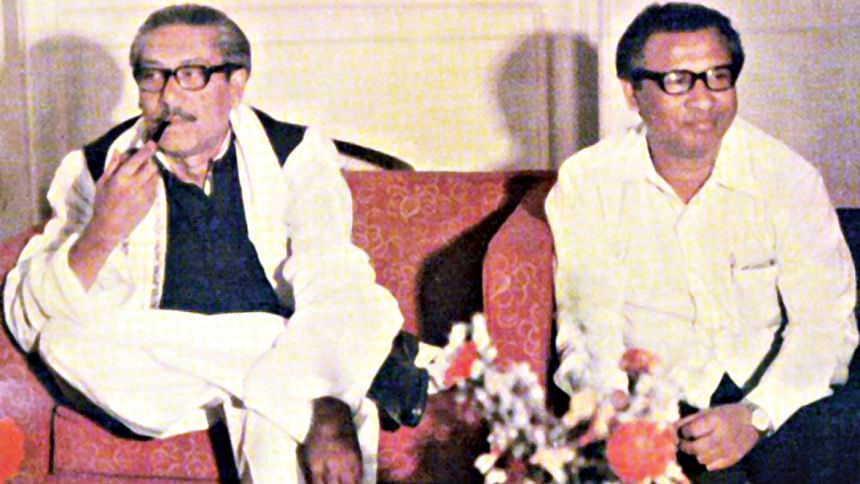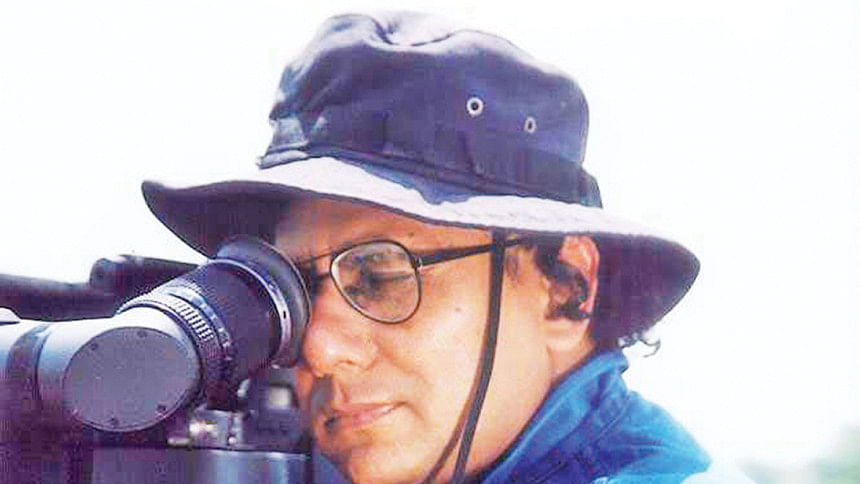‘Tajuddin Ahmad seems like a Greek tragic hero who had all the great qualities but destiny was against him’

The Daily Star (TDS): What inspired you to make the documentary Tajuddin Ahmad: An Unsung Hero?
Tanvir Mokammel (TM): Tajuddin Ahmad was a rare Bangladeshi politician—incorruptible, highly educated, secular, profoundly patriotic, and an organisational wizard. I had deep respect for these personal traits of Tajuddin Ahmad, as well as for his decisive role during our Liberation War.
Events in the 1971 war happened almost with Biblical proportions—three million people killed, more than two hundred thousand women raped, and ten million people forced to migrate to India. Never in history have so many people migrated from one country to another. In every sense of the term, the 1971 war was an epic war. And it was also a people's war. Millions of families were affected or took part in this war.
But after independence, to glorify one person or a family, the roles of others like Tajuddin Ahmad and his comrades—who had successfully led the war—were neglected. There was also the tragic way this star-crossed man was later murdered inside Dhaka jail in 1975.
To me, Tajuddin Ahmad seems like a Greek tragic hero who had all the great qualities, but destiny was against him. I always wanted to make a documentary on this remarkable man in our history. But the specific moment, I reckon, was when Tajuddin Ahmad's daughter, Simeen Hossain Rimi, approached me to make the film on her father.
TDS: Tajuddin Ahmad remains overshadowed in our mainstream narratives. Do you think there has been a deliberate political amnesia surrounding his legacy?
TM: The Liberation War of 1971 is the most glorious legacy of our nation, and also the very raison d'être for Bangladesh to be an independent state. But unfortunately, there have been quarters in Bangladesh who tried—and are still trying—to obliterate the memories of our people about the war.
Czech novelist Milan Kundera once said, "The struggle of people against power is the struggle of memory against forgetting." I believe my job as an artist is to rekindle those memories of our people which the Paki-minded ruling cliques want to erase. My job as a filmmaker is to give voice to the voiceless.

The problem also remained within Tajuddin's own party, the Awami League. Since its birth, one section of the Awami League was pro-Western (read: pro-American). Another chunk wanted socialism. Tajuddin belonged to the second camp. But this section was never at the helm of the party.
The international scenario was also not in his favour. To quote Hamlet, the time was "out of joint". It was the era of the Cold War, when the USA was very aggressive against any socialist endeavour in the Third World. A time when Congo's Patrice Lumumba or Chile's Salvador Allende were murdered because of their left-leaning activism.
Robert McNamara, an epitome of aggressive US capitalism, was then the chief of the World Bank. McNamara was the person who had initiated the concept of NGOs in Third World countries, which, to a large extent, was instrumental in destroying the left movement in these societies.
Tajuddin's pronounced dislike for McNamara was so strong that, on one occasion in Delhi, he even refused to speak to him! It requires some guts for the Finance Minister of a poor Third World country to disrespect the all-powerful World Bank supremo! So, no doubt, a spirited person like Tajuddin Ahmad would not be tolerated by the Western deep states.
Tajuddin's fall—and subsequent murder inside jail—were, in that sense, very much on the cards.
TDS: What were the most challenging aspects of making this documentary—be it access to archival material, ethical dilemmas, or political sensitivities? In retrospect, is there anything you would have done differently?
TM: As a nation, we Bengalis are not very history-conscious and have very little archival sense. So, for any documentary filmmaker in this country, lack of well-preserved archival material or footage is an endemic problem. But I acquiesce to this as part of my professional hazard.
The real concern for me in making the film on Tajuddin Ahmad was addressing the special bond that existed between Bangabandhu Sheikh Mujibur Rahman and Tajuddin Ahmad.
When Bangabandhu revived the Awami League in the early 1960s, due to Tajuddin's exceptional intellectual ability and organisational skills, he rightly picked him as the general secretary of the party. Tajuddin, on the other hand, had immense respect for Bangabandhu as a charismatic leader of men. He once told Tofael Ahmed, "We have placed all our life's savings in Mujib Bhai's account."
The relationship between the two had a special chemistry and was mutually very compatible. But their harmonious relationship began to sour after Bangladesh's independence. Bangabandhu, once a protégé of Hussain Shaheed Suhrawardy, though he wanted socialism, also had a fascination for Western liberal democracy. Tajuddin, on the other hand, was more of a social democrat.
So there was a schism—and that schism gradually widened, to the point that Tajuddin Ahmad ultimately had to leave Bangabandhu's cabinet. Addressing the nuanced political sensitivity of this part of our history was the most challenging aspect for me in making the documentary.
TDS: In today's polarised political climate, what lessons from Tajuddin Ahmad's leadership and character do you believe are most relevant for Bangladesh and the wider region?
TM: As I said earlier, incorruptibility, dedication to a cause, secularism, organisational skill, and commitment to the welfare of the people were the hallmarks of Tajuddin's persona and political ideology. Unfortunately, these qualities are missing among today's politicians.
And I reckon this is true for the whole world now. Politics has become more of a corporate affair. Idealism, unfortunately, has taken a back seat among today's politicians—both in Bangladesh and across the globe.
The interview was taken by Priyam Paul.

 For all latest news, follow The Daily Star's Google News channel.
For all latest news, follow The Daily Star's Google News channel. 



Comments